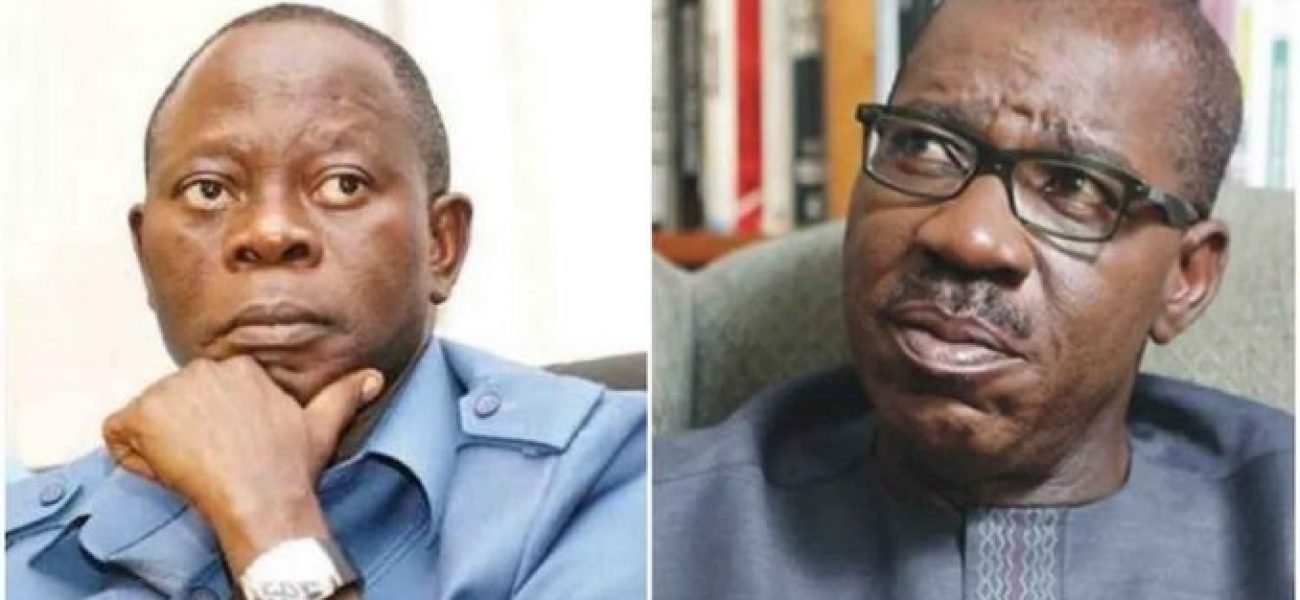The intrigues surrounding who emerges candidate in the two major political parties of Edo State appear to be deepening. In the All Progressives Congress (APC) where incumbent Governor, Godwin Obaseki appeared ready to take the party’s flag in the primaries, intrigues within the party have chucked him out. He was disqualified by the party’s screening committee for “defective” qualifications. His challenger from the opposing political party, the Peoples Democratic Party (PDP) in the 2016 governorship election, Pastor Osagie Ize-Iyamu has in the meantime crossed over to the APC, apparently favoured by the party’s national leadership to clinch the ticket of the APC. And in the other major party, PDP, its governorship ticket appears to be hanging. Speculations are rife that Obaseki, disqualified by the APC is angling to be the party’s flagbearer in the September 19 governorship election following his resignation from the APC. For Edo State, nothing would have changed if the same candidates but this time, in different political parties, were to emerge again as candidates in the two leading political parties. INEC has set June 27 for submission of nominations of candidates by the parties. For observers, the worry is that again, Edo State governorship contest could face the threat of violence. At this time, the risk is rated high and election observers, the electoral commission and security services would need to prepare to confront the possibility of violence during the governorship election.
Tension has been building up within the APC and in the State ahead of the governorship election in the light of the fallout between Governor Obaseki and his predecessor and National Chairman of the APC, Adams Oshiomhole. Factions have emerged in the party following this development and have defied several reconciliation attempts. The altercation was further intensified by disagreements over the party’s preferred mode of primary to select its governorship candidate. While Oshiomhole and the National Working Committee (NWC) of the party opted for direct primary, members of the party loyal to Obaseki preferred indirect primary election. The State Government therefore issued a regulation to the effect that political parties will be prohibited from conducting direct primaries in the State in a bid to contain the spread of COVID-19. While other political parties like the major opposition, PDP have chosen indirect primaries, the APC has insisted on direct primary.
The tiff in APC goes back to the issue of godfatherism in Edo elections. Oshiomhole had first contested for governorship election in Edo State, defeating the candidate of the PDP who was supported by then PDP strong man, Anthony Anenih. Anenih was seen as the ultimate godfather in Edo politics and nobody emerged in any political position without his endorsement. Oshiomhole emerged Governor in a swell of popular votes and boasted then that godfatherism had been defeated in the State’s politics. It would appear that Oshiomhole only worked to replace Anenih with himself as the godfather of Edo politics. In 2016, he had singlehandedly handpicked the incumbent governor as the candidate of his party in the election. Whether his new role would endure is now a matter of how Edo people decide in the September 19, 2020 governorship election.

